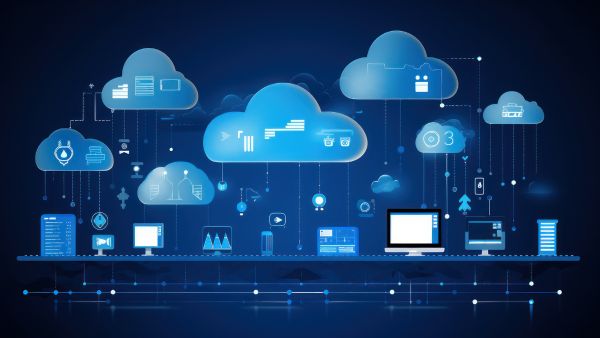Tech
The Importance of Infrastructure Security in a Hybrid World

Hybrid work models have become the new norm in America. In fact, an estimated 70 percent of businesses have either switched to hybrid work or are in the process of doing so at this point. Many more are considering it. Though this trend may have taken shape because of the pandemic, it’s not expected to fade away now that it’s over.
Taking a Brief Look at the Benefits and Downsides of Hybrid Work Models
It seems that hybrid work is working out well for both businesses and their employees. Companies that have embraced this new norm are seeing improved productivity and higher employee retention rates. Some are even reporting significant decreases in their costs of operation. Employees are happier and less stressed as well. That being said, hybrid work models are also causing a few problems for businesses with increased vulnerability to security breaches being one of the most concerning. Ramping up their security infrastructure in this increasingly hybrid world with tools like acaas is essential.
Exploring the Importance of Infrastructure Security
With hybrid work models, employees access sensitive information from numerous places and sources. They may work from home or shared workspaces. Some work at their favorite parks or coffee shops. In some cases, they even work while visiting friends and relatives. While many companies provide equipment for their employees to use when they’re not in the office, some people use their personal laptops, tablets, and phones while they’re working remotely.
That can create several weaknesses for businesses and give hackers ample room to attack. Quite a few tools are available to help reinforce companies’ security efforts. Those include device management, endpoint protection, firewalls, encryption, virtual private networks, and intrusion detection and prevention systems. Access control measures, such as multifactor authentication and role-based access, can also be used to keep sensitive information from falling into the wrong hands.
Cybersecurity isn’t the only factor to consider for businesses that are operating on a hybrid work model. Physical security measures are equally important. In many cases, employees are coming and going on different schedules. That can make keeping track of them a bit difficult. Video surveillance, key cards, facial recognition software, on-premise intrusion detection, alarm systems, and automatic license plate recognition are some of the most effective solutions in this arena.
These tools can help businesses ensure employees only have access to the areas they’re supposed to. They can also guarantee no outsiders or unauthorized personnel slip through the cracks. Those measures can help businesses respond more quickly and effectively to security breaches and other emergencies as well. They also give companies a way to track unauthorized access and other security issues back to their sources.
Keeping Businesses Secure in a Changing World
A growing number of businesses are making the transition to hybrid work models. Some are even switching to fully remote operations. Both of those once-unconventional options are becoming more mainstream, and they’re expected to grow even more common moving forward. They offer an array of benefits for businesses and employees alike. Despite their advantages, they’re also leaving certain gaps in businesses’ security infrastructures. That’s leaving companies more vulnerable to both cyberattacks and on-site security breaches. As such, understanding the risks and taking measures to eliminate them is becoming increasingly important. It protects businesses as well as their employees and other members of their supply chains.
Kenneth is a proud native of sydney, born and raised there. However, he pursued his education abroad and studied in Australia. Kenneth has worked as a journalist for almost a decade, making valuable contributions to prominent publications such as Yahoo News and The Verge. Currently, he serves as a journalist for The Hear Up, where he focuses on covering climate and science news. You can reach Kenneth at [email protected].










